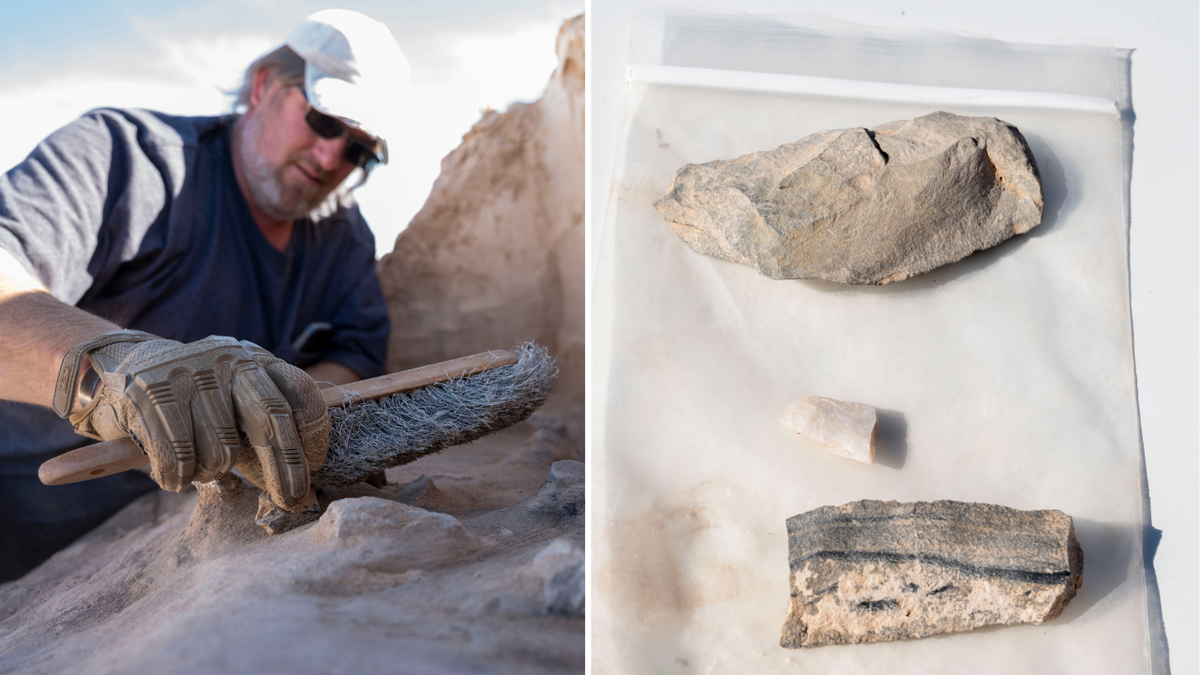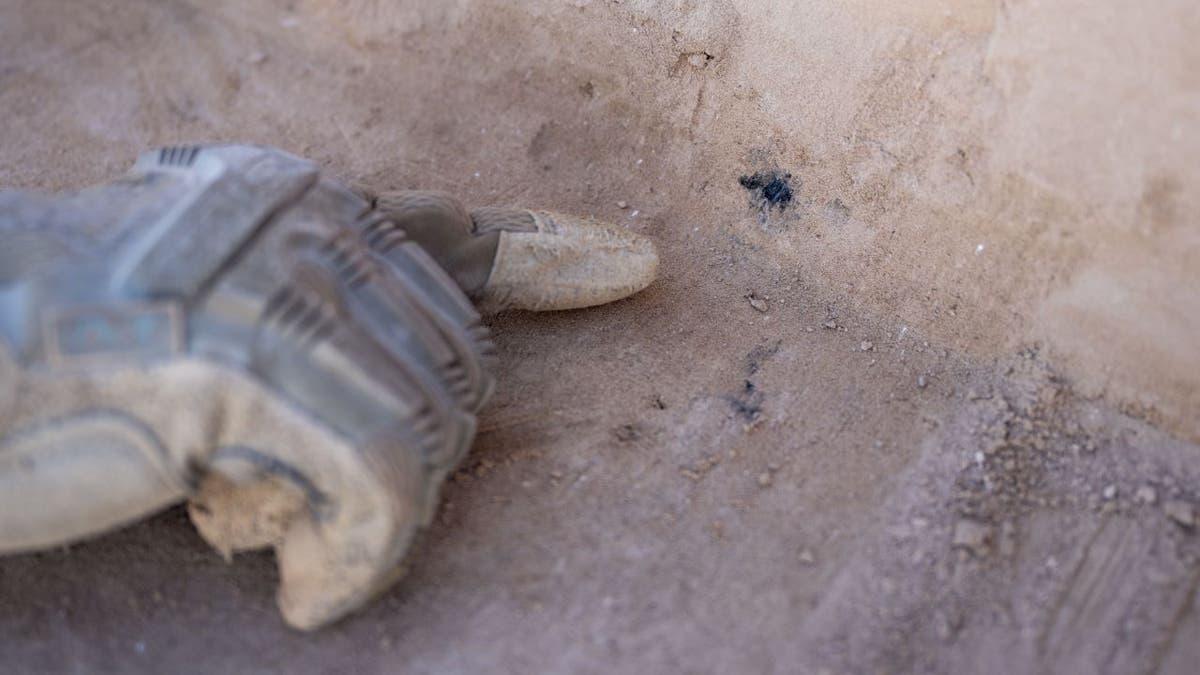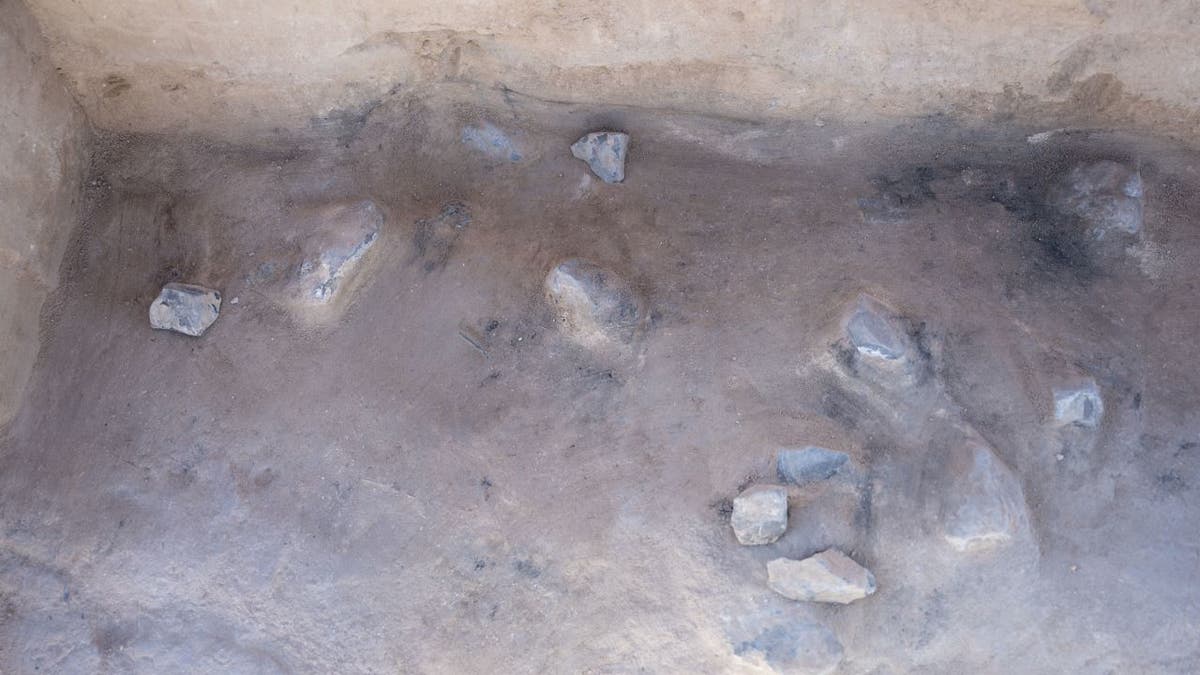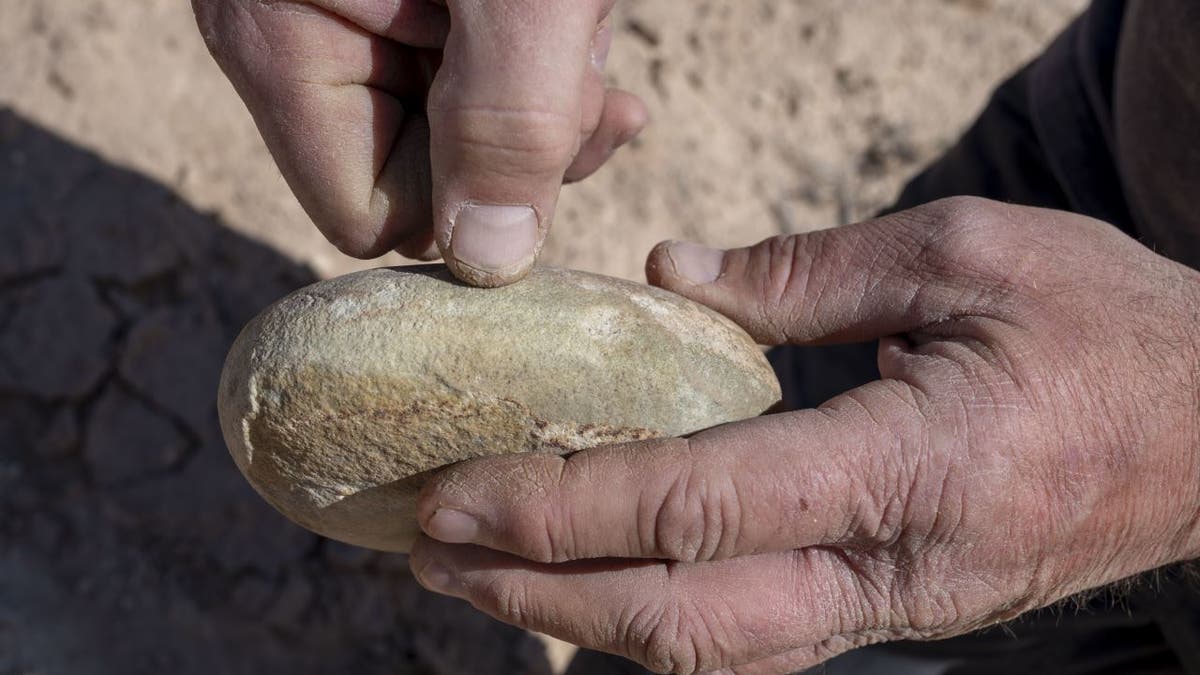Tourists brazenly destroy ancient rock formations at Nevada's Lake Mead: video
National Park Service (NPS) officials are searching for the two adult men who were filmed destroying ancient rock formations at Lake Mead in Nevada. (Source: Kim Passoth via FOX 5 Vegas)
United States Air Force (USAF) service members recently discovered an ancient campsite that dates back over 8,000 years, according to officials.
The millennia-old ruins, which were found on Holloman Air Force Base, are believed to have been inhabited by the earliest settlers of New Mexico. USAF officials say that the 8,200-year-old campsite was discovered buried around two meters deep, according to a March 21 press release.
The USAF explained that 49th Civil Engineer Squadron environmental flight members and geomorphologists – people who study how the Earth's surface evolves – found the site back in March. The location has been named Gomolak Overlook and was found near the borders of the military base.
STRANGE ROCK UNCOVERED DURING SEA SEARCH TURNS OUT TO BE ANCIENT BATTLE GEAR
In a statement, 49th CES cultural resource manager Matthew Cuba said that sands from the nearby White Sands National Park buried the site over the past thousands of years.

United States Air Force (USAF) service members announced the discovery of an ancient campsite on Holloman Air Force Base, near White Sands National Park in New Mexico. (Airman 1st Class Isaiah Pedrazzini/U.S. Air Force)
"The formation of the white sand dunes inadvertently buried the site, with windblown silt protecting the delicate archaeological remains," Cuba said.
"This site marks a pivotal moment in shedding light on the area's history and its early inhabitants."
The campsite contained the remains of a hearth, which even included charcoal stains – a testament to how much early settlers depended on fire.
ANCIENT SHIPWRECKS, ARTIFACTS DATING AS EARLY AS 3000 BC UNCOVERED BY UNDERWATER RESEARCHERS
"Found on the site were approximately 70 items, ranging from flake stones to a rare example of an early ground stone, providing valuable clues about past human activities," said Cuba.

Charcoal stains were found on the millennia-old hearth, according to photos by the U.S. Air Force. (Airman 1st Class Isaiah Pedrazzini/U.S. Air Force)
"We also uncovered a series of hearths, or community campsites, with remnants of mesquite charcoal, which is a tremendous find in and of itself."
The artifacts found by searchers will be studied and preserved, officials say.
"Adhering to the National Historic Preservation Act, we will ensure that all necessary steps are taken to preserve the site's integrity while facilitating the progress of the test track project," 49th CES environmental chief Scott Dorton was quoted as saying.
CLICK HERE TO SIGN UP FOR OUR LIFESTYLE NEWSLETTER
"The Department of Defense's stewardship of vast tracts of land, including areas between White Sands National Park and Holloman, inadvertently protects numerous documented and undocumented archaeological resources," he added. "As a result, some of the best-preserved archaeological records in the Tularosa Basin reside on DoD land."

The remains of an 8,200-year-old hearth found at Gomolak Overlook. (Airman 1st Class Isaiah Pedrazzini/U.S. Air Force)
The USAF says that the discovery "offers insights into early human adaptation and environmental changes."
CLICK HERE TO GET THE FOX NEWS APP
"As stewards of these resources, we must ensure their preservation and documentation for future generations and ensure that cultural resources are protected while also allowing for progress and development," Cuba said.

A ground stone was recovered at the site, believed to be over 8,000 years old. (Airman 1st Class Isaiah Pedrazzini/U.S. Air Force)
Fox News Digital reached out to USAF for a statement, but did not immediately hear back.
For more Lifestyle articles, visit www.foxnews.com/lifestyle.









































